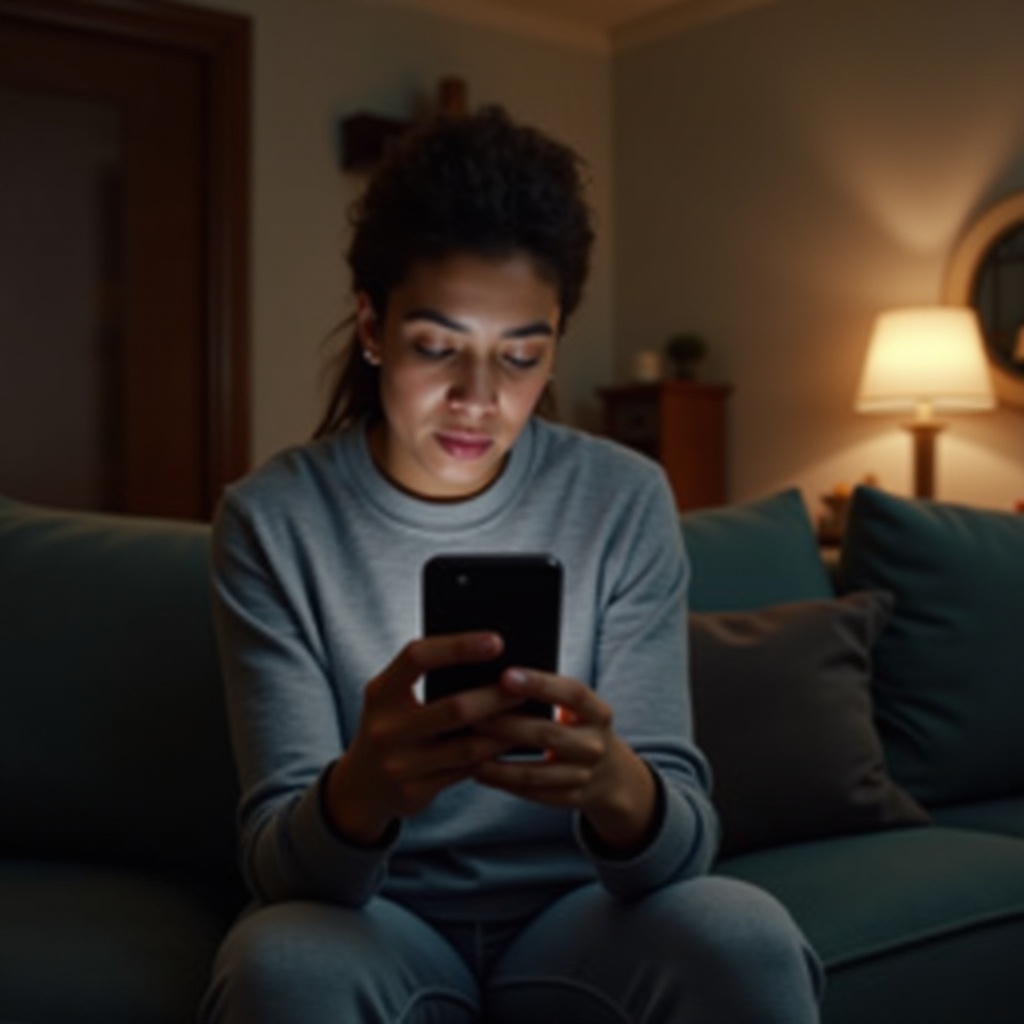Introduction
Smartphones have become an integral part of modern life, offering us instant access to information and keeping us connected to the world. From social media to work emails, our daily interactions are often tethered to our phones. This constant connectivity raises questions about the time we spend on these devices. By understanding the average time spent on mobile phones, and the factors influencing such behavior, we can explore ways to reduce excessive usage and promote healthier habits.

The Current State of Mobile Phone Usage
Recent statistics highlight the extensive amount of time individuals spend on their mobile phones. Research indicates that the average person spends about 3 to 4 hours on their phone daily. This amount has been steadily increasing over the years, reflecting the growing dependence on mobile devices. Most of this time is spent browsing social media platforms, messaging, and consuming various forms of digital content. Apps such as Facebook, Instagram, Twitter, and TikTok are particularly addictive, consistently demanding users’ attention. In addition, messaging apps like WhatsApp and traditional phone calls add to this time, along with streaming services like Netflix and YouTube.
Understanding current mobile phone usage patterns can help illuminate the factors that contribute to these trends. Knowing these insights can guide efforts to manage phone use better, fostering a more balanced digital lifestyle.
Factors Influencing Phone Usage Time
Several factors contribute to the extensive time people spend on their phones. Here are a few key elements:
-
Social Media Engagement: Social media is the primary driver behind increased phone usage. Platforms are designed to capture and maintain users’ attention through features like notifications, infinite scrolling, and personalized content feeds. These elements foster an addictive environment that encourages prolonged use.
-
Work and Communication Needs: Smartphones are essential tools for professional communication. Emails, messaging apps, and conferencing tools like Zoom have become integral for remote work setups, thus increasing daily phone usage.
-
Entertainment Consumption: Streaming services, gaming apps, and browsers offer endless entertainment options, making it tempting to reach for the phone in every free moment.
-
Dependency Habits: Checking phones out of habit, even without a specific reason, has become common. Notifications and the impulse to stay updated often lead to overuse.
-
FOMO (Fear of Missing Out): The anxiety of missing out on important updates or events can drive individuals to frequently check their phones.
By recognizing these influences, we can better understand our phone usage depth and identify ways to address potential overdependence.
The Impact of Excessive Phone Use
Excessive phone use can have significant repercussions on various aspects of life. Here are some of the main impacts:
-
Physical Health Issues: Prolonged phone use can lead to problems such as eye strain, poor posture, and a sedentary lifestyle. Constantly looking down at a screen contributes to neck and back pain, while reduced physical activity increases the risk of obesity and other health issues.
-
Mental Health Concerns: High phone usage, especially on social media, has been linked to anxiety, depression, and decreased well-being. Comparisons with others’ seemingly perfect lives can reduce self-esteem and foster negative thoughts.
-
Reduced Productivity: Constant notifications and the temptation to check the phone can interrupt work or study sessions, leading to decreased focus and productivity. Multitasking with phones also disrupts cognitive processes.
-
Sleep Disruption: The blue light emitted by phone screens interferes with melatonin production, a hormone that regulates sleep. This disruption results in poor sleep quality and difficulty falling asleep, affecting overall health.
-
Interpersonal Relationship Strain: Prioritizing phone use can strain relationships with family and friends. Constant engagement with devices can lead to poor communication and a lack of meaningful interactions.
Recognizing these negative effects highlights the importance of being mindful of our phone usage and striving for a healthier balance.

Reducing Phone Dependence: Practical Tips
Reducing phone dependence requires conscious efforts and practical strategies. Here are some helpful tips to get started:
-
Set Screen Time Limits: Utilize built-in screen time management features on most smartphones to track and limit usage.
-
Disable Non-Essential Notifications: Turn off notifications for apps that aren’t urgent to reduce the temptation to check your phone frequently.
-
Create Phone-Free Zones: Designate specific areas or times to be phone-free, such as during meals, in the bedroom, or while working.
-
Engage in Offline Activities: Invest time in hobbies, physical activities, and in-person social interactions to reduce reliance on digital entertainment.
-
Practice Mindfulness: Stay aware of your habits and actively work towards minimizing unnecessary phone use.
Consistency and self-discipline are key to reducing phone dependence and achieving a healthier digital lifestyle.

Conclusion
Understanding the average time spent on mobile phones and the factors influencing this behavior is crucial in addressing the issue. Acknowledging the impact of excessive phone use and implementing practical strategies to reduce dependence can help individuals achieve a balanced and healthy relationship with their devices. Small changes can lead to significant improvements in overall well-being and productivity.
Frequently Asked Questions
How much time does the average person spend on their phone each day?
On average, people spend about 3 to 4 hours on their phones daily. This time is divided among various activities, including social media browsing, communication, and entertainment consumption.
What are the negative effects of excessive phone use?
Excessive phone use can lead to eye strain, poor posture, anxiety, depression, reduced productivity, disrupted sleep, and strained interpersonal relationships.
What are some tips to reduce phone usage?
To reduce phone usage, set screen time limits, disable non-essential notifications, create phone-free zones, engage in offline activities, and practice mindfulness around phone habits. Consistency in these strategies is essential for lasting change.

